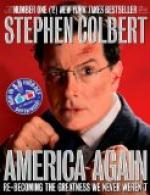“News? Stacks of it” he shouted. The Fizzer always shouted. “The gay time we had at the Katherine! Here, steady with that pack-bag. It’s breakables! How’s the raisin market? Eh, lads!” with many chuckles. “Sore back here, fetch along the balsam. What ho, Cheon!” as Cheon appeared and greeted him as an old friend. “Heard you were here. You’re the boy for my money. You bally ass! Keep ’em back from the water there.” This last was for the black boy. It took discrimination to fit the Fizzer’s remarks on to the right person. Then, as a pack-bag dropped at the Maluka’s feet, he added: “That’s the station lot, boss. Full bags, missus! Two on ’em. You’ll be doing the disappearing trick in half a mo’.”
In “half a mo’” the seals were broken, and the mail-matter shaken out on the ground. A cascade of papers, magazines, and books, with a fat, firm little packet of letters among them: forty letters in all—thirty of them falling to my lot—thirty fat, bursting envelopes, and in another “half mo’” we had all slipped away in different directions—each with our precious mail matter—doing the “disappearing trick” even to the Fizzer’s satisfaction.
The Fizzer smiled amiably after the retreating figures, and then went to be entertained by Cheon. He expected nothing else. He provided feasts all along his route, and was prepared to stand aside while the bush-folk feasted. Perhaps in the silence that fell over the bush homes, after his mail-bags were opened, his own heart slipped away to dear ones, who were waiting somewhere for news of our Fizzer.
Eight mails only in a year is not all disadvantage. Townsfolk who have eight hundred tiny doses of mail-matter doled out to them, like men on sick diet can form little idea of the pleasure of that feast of “full bags and two on ’em,” for like thirsty camels we drank it all in—every drop of it—in long, deep, satisfying draughts. It may have been a disadvantage, perhaps, to have been so thirsty; but then only the thirsty soul knows the sweetness of slaking that thirst.
After a full hour’s silence the last written sheet was laid down, and I found the Maluka watching and smiling.
“Enjoyed your trip south, little ’un?” he said, and I came back to the bush with a start, to find the supper dead cold. But then supper came every night and the Fizzer once in forty-two.
At the first sound of voices, Cheon bustled in. “New-fellow tea, I think,” he said, and bustled out again with the teapot (Cheon had had many years’ experience of bush mail-days), and in a few minutes the unpalatable supper was taken away, and cold roast beef and tomatoes stood in its place.
After supper, as we went for our evening stroll, we stayed for a little while where the men were lounging, and after a general interchange of news the Fizzer’s turn came.




